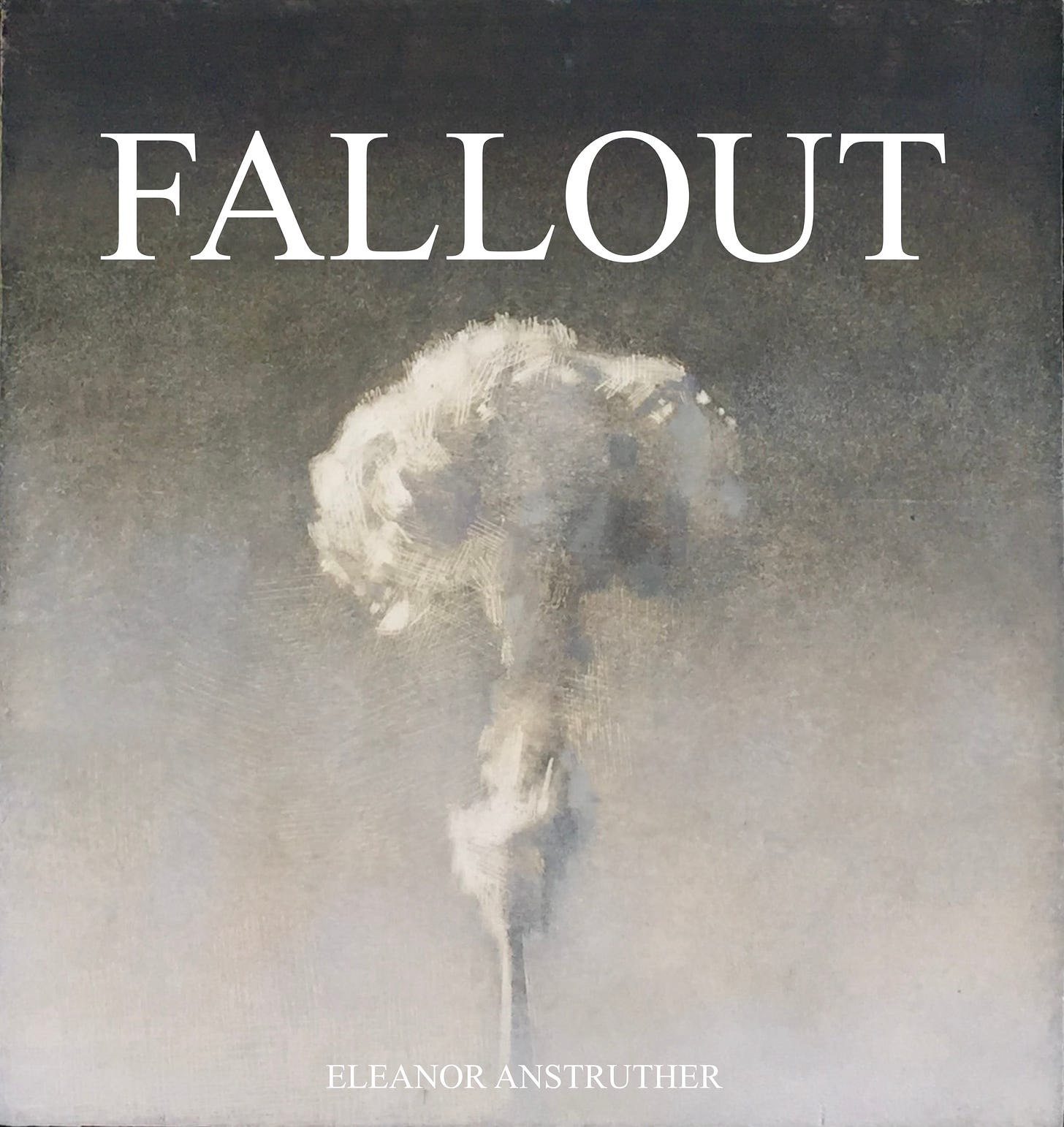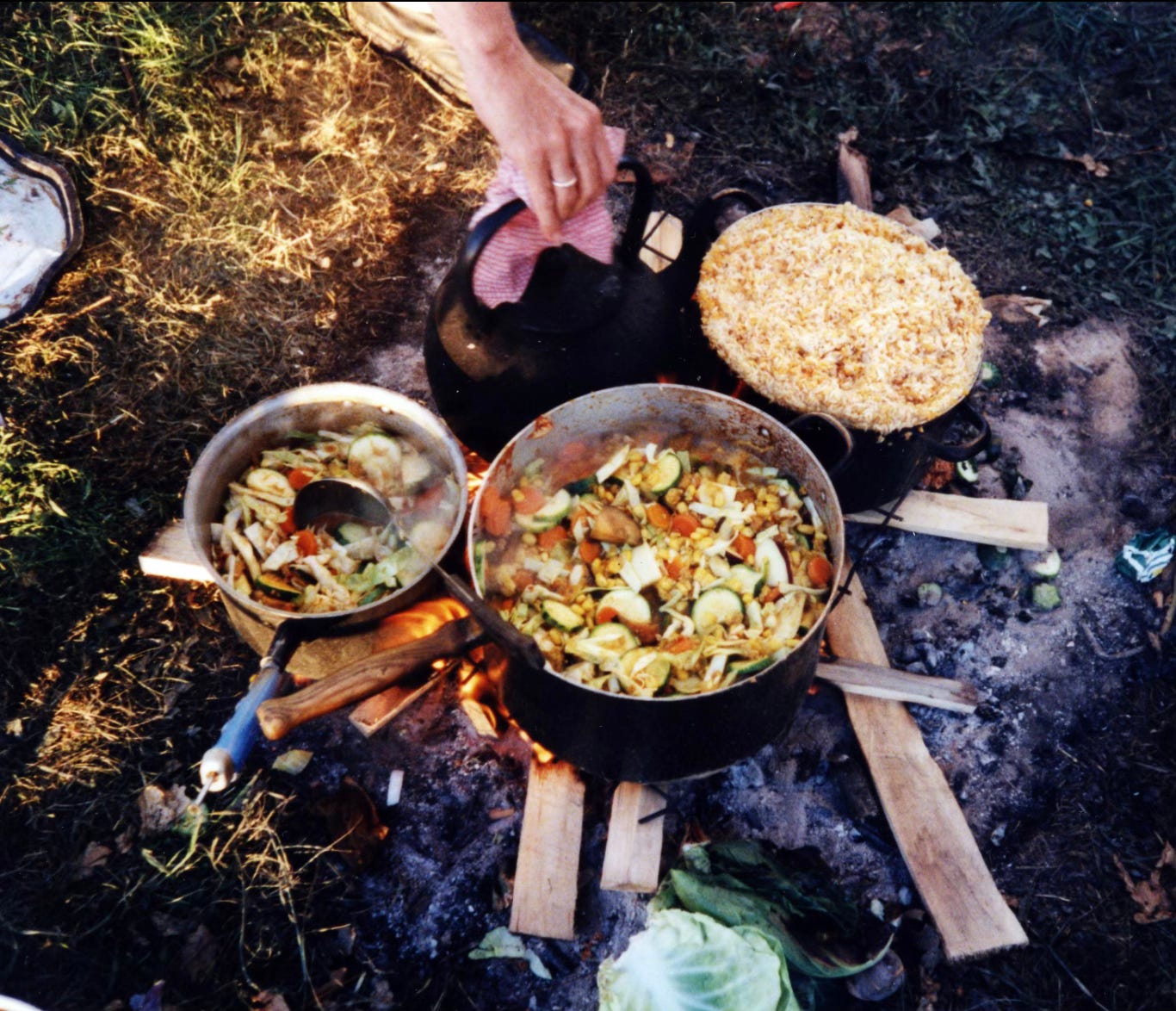On Tuesday morning she knocked on Kate Hilperton’s door, making sure to leave her own front door on the latch. She’d given Paul the last of the butter on his toast, no eggs this time, he’d said he’d do it and smashed all three, their whites and yolks mixing with the cold water in the pan, she’d chucked the whole lot down the sink, Paul had cried. She knocked on Kate Hilperton’s door, but it was Peggy who answered.
“All right.”
“All right.”
“What you doing?”
“Nothing.”
“I’m revising,” Peggy yawned. “Do you want to come in?”
Bridget shook her head. Peggy shut the door.
She defrosted some peas and gave them to Paul for his lunch with a can of baked beans shared between them. Halfway through shovelling beans into his mouth, a nosebleed exploded, mixing blood and ketchup, Bridget had to strip him off and make him lie on the sofa with his head back, so small and shivery, she ran up to his room to find him clean clothes. She got him dressed in clean pyjamas and then he bled all over them and the sofa then he bled all over his bed. Dirty sheets piled up in the upstairs hall. Kit ran out of food. For supper they ate one of the emergency tins of soup in the downstairs toilet.
“When are they coming back?” said Paul after Bridget said sorry for shouting.
She left all the lights and the radio on that night when she went to bed, just like as if they were there and she’d gone up and they were still down in the kitchen.
There was no milk for breakfast on Wednesday morning either, Bridget had forgotten to put the empties out, her mum always did it. Paul ate the last of his Shreddies dry, straight out of the packet. There was only the heel of the bread, gone stale, she spread it with jam and ate it standing up.
Paul ran out of clean pants. Bridget ran out of clean plates, dirty laundry cluttered the bathroom floor, they raided the fallout shelter for dry towels.
“Can’t we go somewhere,” said Paul.
“We have to stay here.”
“But when are they coming back?”
Bridget tried her uncle’s number again. It rang and rang but still he didn’t answer. Then she rang her other uncle and then she rang her aunt. None of them answered. She tried to make pasta but it turned into a gloop and she threw it away.
“Dad keeps tins in the shed,” said Paul. He went out and rattled the padlock.
Bridget had said to her dad last summer, “what if you’re not here when it happens? What if we have to get in?” But he’d refused to leave it unlocked. She peered through the window at the piles of supplies hoarded since the pamphlet had come through the door.
“We could break in,” said Paul holding his toy sledgehammer. Bridget went and got a brick from the pile at end of the garden where her mum had tried to make a rockery. The first hit on the padlock grazed her knuckles, the second glanced off and whacked her knee.
“Do it again,” said Paul.
The third broke the hook.
She threw the broken bits on the grass and opened the door on her dad’s WW3 HQ. The poster on the wall had come as a Mail on Sunday pull-out-and-keep as if a checklist of siren calls was as sweet as the one about birds they’d done the week before. The photocopy of essential items he’d done himself with his ticks beside each item, the memory of him shouting at Paul when he couldn’t remember which sound meant to run for shelter. Amongst the piles of toilet roll and blankets and buckets, the three radios and spare batteries and the bin bag of clothes, her jumper snaking out the top, was a crate of tins. Kit followed them in and leapt up beside Paul.
“He never put Kit’s food in.” He held up a tin of mushrooms.
There was a trunk under another load of blankets. Bridget moved them off to see better. Another padlock. This one was harder to break, but Paul found their dad’s hammer and crowbar and Bridget had got good with her hands, wasn’t afraid of a lock anymore.
“Why’s he got mum’s clothes?” said Paul.
Skirts, dresses, tights, and bras. A white plastic bucket like the one in the bathroom but this one full of makeup; tubes of foundation, piles of cotton wool pads and sponge blotters, blusher brushes and mascara, lipsticks and Kerby grips, rubber swimming caps collapsed like jellyfish. Under it all, a taffeta dress that rustled, a pair of heels with diamond buckles; Paul dipped his little arm in and picked up a platinum blonde wig fixed in a high bouffant with a fringe, a tiara woven in. He dislodged a photograph that was tucked into a corner of the trunk, setting it askew, a man smiling as if newly qualified from some adult school, hair slicked, shoulders of a neat suit, at his throat the black and white collar of a vicar like Bridget had seen the vicar wear at her mum’s church. Behind it the corner of another photograph, Bridget pulled it out. The same man but further away, the full length of him and no dog collar this time, him with her dad on a street, her dad with his arm round him as if they were brothers, something close and casual, a friend, both of them smiling.
“My princess,” said Paul holding up the wig.
“Put it back.” Bridget tucked the photograph behind the other again but it slipped and fell down amongst taffeta.
“I told you I saw her.”
When he was little, he swore a beautiful princess had appeared by his bed and Bridget had teased him relentlessly until her mum had told her to leave off. She’d made him cry, she’d frightened him into thinking he’d seen a ghost, but he always kept his knight on its rearing horse in his pocket and another in the bathroom and another by his bed just in case.
“Just put it back, Paul.”
“Why did he take her hair?”
Bridget almost slammed his fingers in the lid.
For lunch they ate spaghetti hoops out of the tin.







A woman’s work is never done!
Oh, my whole heart just feels for Paul--you can see his little face trying to piece together this puzzling narrative! And Bridget's tensile strength through it all. Beautifully done.